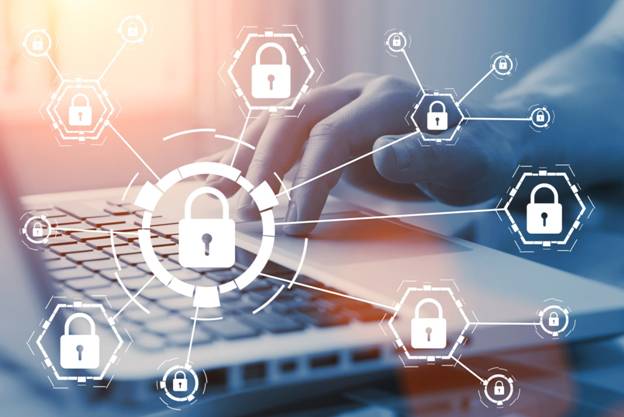Cybercrime surged during the pandemic, with millions conducting professional and personal errands online. Among the most victimized internet users are businesses.
In the first half of the year alone, hackers stole $2 billion in cryptocurrency. This is only one of the many attacks launched by cybercriminals against businesses. Attacks range from simple phishing to costly ransomware.
Indeed, there’s no better time to advance your business’s cybersecurity than now. Read on to learn about some of the most common business cybersecurity errors and how to avoid them!
1. Errors in Business Mindset: Handling Your Cybersecurity Alone
Internal factors such as perceptions are one of the biggest cybersecurity threats. For instance, assuming your company won’t be a target is wrong.
Did you know that about 43% of all cyberattacks are primarily targeted at small businesses? This is because cybercriminals are more attracted to small businesses. After all, they’re small.
From their perspective, the company is likely lacking resources. Thus, its cybersecurity system is mediocre.
As such, there’s a need to broaden one’s perspective when it comes to cybersecurity. Understand that your business or organization will always be at risk if you use the web. You must take the necessary steps to lessen the chances of cyberattacks.
It’s impractical to handle your cybersecurity by yourself. Unless you have experience, shouldering cybersecurity responsibilities requires deep knowledge and skills. Not to mention, the field of cybersecurity is changing and becoming more and more complex.
Facing cyber threats alone will only cause more damage. Hence, leaving your cybersecurity system with a managed service provider is always a good idea.
2. Lack of Employee Training
Employing a managed service provider isn’t enough to fight off cybercriminals. Malicious attackers are constantly looking for a weak link to breach your security. Often, the weak link in an organization is the employees themselves.
Phishing, for instance, is one of the most common cyber threats they encounter. Hackers fool employees with enticing links that turn out to be malicious.
Once entrapped, hackers will be able to steal personal and professional data. They’d either use these to blackmail employees or to cause havoc in the company.
What’s even more alarming is that phishing is becoming more and more sophisticated. This makes it challenging to identify and avoid phishing attacks.
Fortunately, you can prevent these from happening if you educate your employees. By incorporating a solid work culture for cybersecurity, you can decrease the cyber risk factors in your organization.
Consider hiring a cybersecurity professional to educate and provide training for your employees. Hosting periodic cybersecurity training sessions for your employees is also a good practice. This is especially helpful when introducing business cybersecurity tools or updating cybersecurity strategies.
3. Skimping on Cybersecurity Tool Software to Save Money
Many businesses skimp on security software, thinking they’re saving more Money. However, skimping on cybersecurity software tools leads to a stronger security system.
Contrary, this results in costly reputation damages when the business experience security breaches. Hence, resist the urge to use the default or the cheapest security software.
These are inappropriate since they often come with ads that can serve as a back gate for hackers. Remember that security software is your extra layer of protection.
The more reliable your tool is, the less likely the hackers are to succeed in breaching your system. If possible, protect your business by activating the:
- Encryption software firewall
- network security system
- security and patch monitoring software
- login management tool
- password manager;
- and anti-spyware software
Make sure to choose a reliable software provider for your business. You want cybersecurity software that can keep up with the attacks of malicious users.
4. Foregoing System Updates
When you do install cybersecurity tools, make sure to update them when necessary. Software updates ensure a healthy cybersecurity system by fixing security weaknesses.
Regular software updates also address the growing number of threats your system faces. It can fix computer bugs and lags. In addition, they improve user experience by ensuring that the software is working efficiently.
Hence, the next time you have a chance to audit and update your software, do it immediately. Procrastinating updates can lead to significant downtime and costly mistakes. If you’re worried you might forget, you can turn on the automatic updates option in your software’s settings.
5. Having No Data Protection Backup Plan
Most small to medium businesses think their data needs to be more valuable to steal. It’s even ridiculous to believe they might lose all their data simultaneously. Hence, they limit their data protection system to simple user login passwords.
Yet aside from cyber criminals, business data are also vulnerable to natural hazards. For example, imagine a strong typhoon hitting your place, causing structural damage to your business. During such events, are you confident you can regain all the data you stored in your ruined hardware?
Setting up a reliable backup system for your data is crucial to avoid the permanent loss of valuable information that could’ve helped your business grow. Thus, we recommend using not only an external hard drive backup but also a cloud backup system. You may also want to maintain multiple backup sites for further protection.
6. Lack of Strong Password Protection Mechanism
Establishing a solid password protection strategy is also essential in protecting your data. Instruct your employees to follow specific password creation rules. This includes the frequent updating of their passwords for enhanced security.
Using a password manager program is also advisable. They make a good tracking tool if you implement the regular changing of passwords.
Moreover, normalize Multi-Factor Authentication (MFA) in your organization’s procedures. MFA is a process that requires users to verify their identity using two or more methods.
It can be as simple as receiving text messages on their mobile phone every time they log in. Users could also verify themselves by clicking on a link in an e-mail sent to their e-mail address. Either way, MFA makes it difficult for cybercriminals to infiltrate your system.
7. Having No Recovery Plan
Recovery is the most neglected phase in protecting business data. Instead, many focus on enabling prevention and mitigation mechanisms. Yet this alone isn’t enough to stop cyberattacks.
Remember that cybercriminals are employing more sophisticated means to achieve their goal. More progress in technologies boosts data infiltration activities compared to anti-cybercrime tools.
While you have an excellent preventive plan, experienced cybercriminals can still slip through. When this happens, and you don’t have a recovery plan in place, what do you think will the aftermath be?
Avoid common business cybersecurity errors like this by putting together a recovery plan. Get help from an IT specialist in assessing your cybersecurity system. Get their opinion in deciding on a workable cybercrime response and recovery plan.
8. Lack of System Monitoring
Another common business cybersecurity error has no monitoring system. Monitoring systems are software or hardware components used to track resources. They analyze their operations to make sure that everything is working as is.
A monitoring system allows you to detect if a device or software isn’t working correctly. You’ll automatically receive a notification and advice on how to handle the issue.
Aside from malfunctioning resources, monitoring systems can detect suspicious activities. Once it confirms that a malicious attacker is breaching your system, it’ll take steps to prevent the attack. This allows you to resolve the issue immediately before it becomes a severe problem.
9. Trusting Public wi-fi
It’s enticing to save on the cost by trusting to use public wi-fi. Yet, this move might only lead to more significant damages, such as ransomware.
Public wi-fi connections are the hunting ground of 21st-century cybercriminals. They can easily intercept and get airborne information on public networks.
They can also implement session hijacking and shoulder surfing procedures by luring you with fake wi-fi connections. Hence, secure a separate internet network for you and your employees. See to it that you keep your router in a hidden place to keep people from using it to access your system.
10. Not Having an Acceptable Usage Policy
Most businesses need to include a resource usage guideline in their business policy. However, this is detrimental since users are the most vulnerable to cyber threats.
If not guided properly, they could unknowingly invite hackers into your business system. As such, it’s best to limit contents that employees can access from company devices.
It’s also advisable to restrict administrative capabilities. For example, only some employees need access to computer systems and all your business information.
Also, include rules about the use of your company’s internet network. For example, limit access to the web to company-issued devices. If you have enough budget, insist on using a VPN when accessing the company network in public.
Save Your Business from These Common Business Cybersecurity Errors!
Businesses, big or small, are on the radar of sneaky cybercriminals. Hence, companies need to exert extra effort in protecting their business cybersecurity system.
For one, research how to safeguard yourself from common business cybersecurity errors. It’s also worth investing in your software and hardware cybersecurity system. Improving your business’ cybersecurity system will save you downtime, reputation damage, and recovery costs.
Finally, always be bold and talk with a professional such as an IT specialist. You are up against hundreds of thousands of professional hackers; two are better than one.









